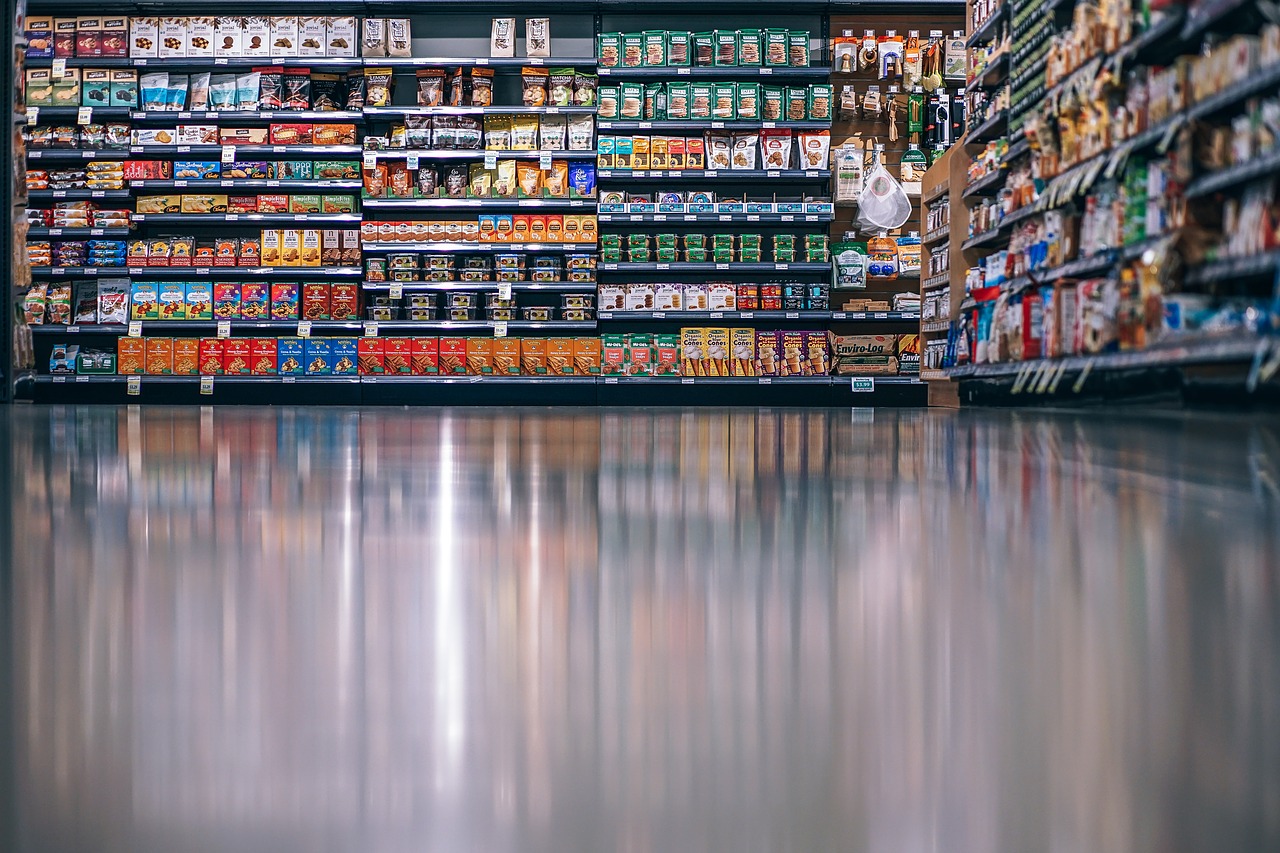Four Examples:
Retailers: Retail is no longer unthinkable without the Internet of things: POS terminals, self-service checkouts, motion sensors, and interactive screens are widely used in stores around the world. Retailers are ready to continue to master technologies, even the most fantastic ones if they will improve customer service and optimize costs. According to analysts of the MarketsandMarkets platform, the Internet of things in the retailers market is growing by 20% annually and will grow to 35.6 billion US dollars by 2025. We understand how modern smart stores surprise customers.
Beer maker AB InBev: installed smart screens for personal discounts
The international company Anheuser-Busch InBev (AB InBev) is the largest beer producer. It accounts for almost 30% of the global market. The company owns international brands Budweiser, Stella Artois, Corona and Hoegaarden, and is also a manufacturer of a number of national brands, for example, in Russia, it is Klinskoye, Siberian Crown and Fat Man. In addition, the brewing corporation is a regular sponsor of the FIFA championships.
In 2014, AB InBev launched a marketing campaign for fans in Argentina for the World Cup. The project was carried out by the Argentine software company Kimetric. The main task that the manufacturers set themselves was to encourage fans who came to stores in the form of a national team.
Sainsbury’s: created an application that eliminates queues at the checkout
Next to beer shelves in supermarkets, LCD screens and Kinect touchless touch controllers were installed. As soon as a person in a blue and white striped T-shirt appeared in the system’s working area, one of the famous football players appeared on the screen. The star greeted the fan and gave him a personal discount on beer.
At the same time, the system clearly recognized t-shirts of the Argentine national team and ignored others. According to Kimetric, more than 50 thousand different T-shirts were used for machine learning, thanks to which the recognition accuracy was 99%. During the action, the system tracked more than 500 thousand people, giving thousands of discounts to fans. In addition, an unusual action attracted media attention.
Sainsbury’s second largest UK supermarket chain, as of May 2018, has 1,423 outlets. A company with a 150-year history accounts for almost 17% of all self-service stores in the country. Until 1995, Sainsbury’s was number one in the UK, but inferior to transnational giant Tesco in recent decades. The desire to regain market leadership forced the company to master smart technologies.
In 2018, Sainsbury’s said it had begun testing a new technology for paying for goods, thanks to which customers no longer had to stand in line at the checkout. The SmartShop mobile phone application developed by the company allows you to scan barcodes of goods and immediately put them in your bag.
All purchases are reflected in the electronic basket. At the end of the queue, the buyer scans the QR code at a special SmartShop cash desk to confirm and pay for purchases. And leaves the store without delay. At the same time, the application also helps customers control the budget by showing the subtotal of the check.
Read: How to stream YouTube to your TV: 6 tips for enjoying videos on your TV
SmartShop can be downloaded to phones running iOS and Android. According to the latest data, the service has been introduced in 68 Sainsbury’s stores in the UK. The network will gradually expand.
One of the drawbacks of the new technology, which experts point out, is that buyers are very tempted to put unscanned goods in their bags. But the honesty of customers in the store is monitored by both security guards and cameras.
In addition, according to Sainsbury’s calculations, SmartShop will increase customer loyalty, reduce store costs, and this will pay off possible losses. The service was actively introduced in the summer of 2018, and in the first months, the company announced that more than 100 thousand transactions a week go through the application, which indicates the interest of customers. However, Sainsbury’s notes that it continues to improve its application based on customer comments.
Also read: What is 5G Technology
Mango: installs smart fitting rooms
Mango, clothing design and fashion company founded in Spain in 1984, now has hundreds of stores worldwide. Only in Russia, according to July 2018, there are 126 points operating. At the same time, Mango noted a steady increase in online sales. A year ago, the company decided to combine the advantages of virtual and real stores. At the beginning of 2018, together with the largest telecommunications corporation Vodafone Mango, she began installing digital fitting rooms in her best stores around the world.
The innovation is based on a smart mirror created in collaboration with the Spanish software development company Jogotech. The usual-looking mirror switches to screen mode. At the same time, the buyer can use it to scan the product tag to look at the panel of all available product options, and then contact the staff in order to ask for a different size or color. In addition, a smart fitting room will additionally offer clothes, shoes and accessories suitable for the selected product. The visitor can immediately add them to their virtual basket.
According to the company, the modern fitting room is the first stage of the Mango digital transformation project, which will update the customer’s interaction with the brand. Online technologies are designed to motivate customers to come to offline stores when they go online and increase the likelihood of a purchase due to the advice of a virtual stylist.
Bring together the latest sensors, cameras and robots
Integrated solutions based on the Internet of things are becoming a clear competitive advantage for retailers in Russia. The development of these technologies is especially relevant in the context of growing competition and global changes in the market, associated, in particular, with the departure of customers online, comments the director of the M2M / IoT MTS Sergey Irevli.
“At the same time, IoT solutions are already available not only for large players, but also for small businesses retailers – and have already proven their effectiveness. One of the most popular solutions based on the Internet of things in Russia is Telecommuting Data. It allows a medium-sized store to optimize the cost of electricity and other resources by an average of 10-15%, ”Sergey Irevli gives an example.
The solution includes access to an innovative Internet of things platform with an open API, allowing you to bring together the latest sensors, cameras and robots. Indications are transmitted to the hub, it sends them to a secure cloud, and then data analysis is carried out through a convenient web-based interface retailers. In case of emergency, the system sends notifications via SMS or e-mail. ”
Read more: How to earn more traffic with an Optimized Homepage SEO




